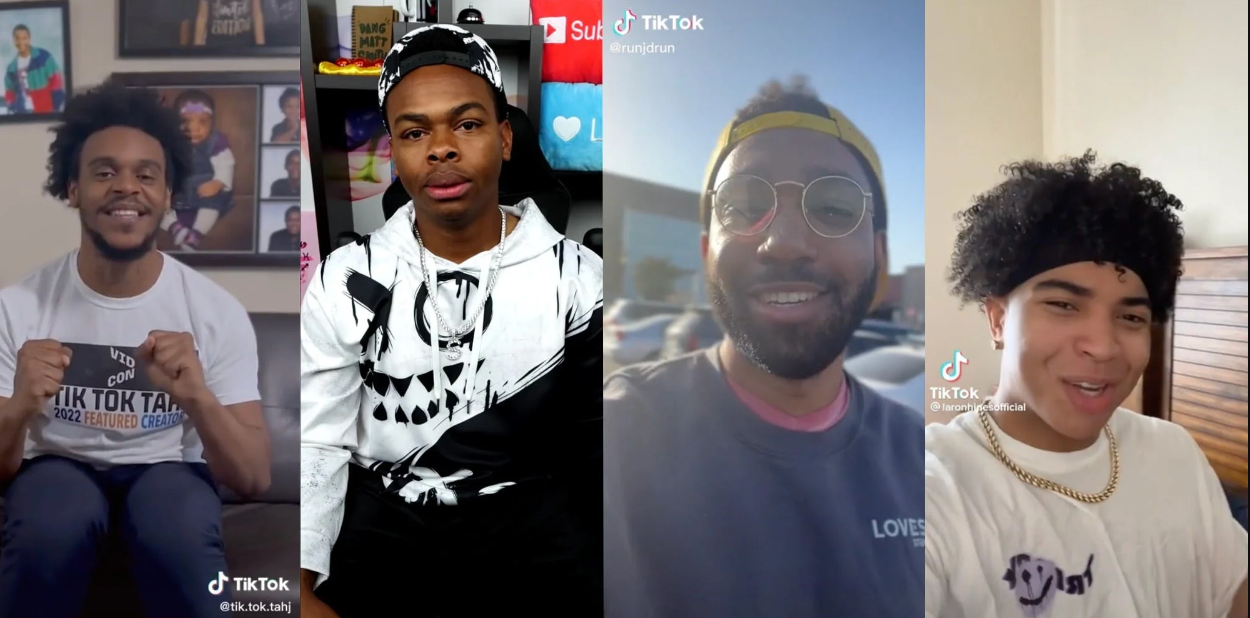
In a panel discussion at VidCon moderated by Kat Blaque, Black content creators discussed what it meant to be Black in media, and how it differs from the white creator experience.
The discussion featured Matt Smith (@DangMattSmith) Tahj (@Tik.Tok.Tahj), JD Witherspoon (@runjdrun), and La’Ron Hines (@laronhinesofficial), and allowed the influencers to speak about content creation from a different angle.
Kat Blaque opened the discussion with a poignant question: “What’s it like to Black online?”
Tahj was quick to answer: “It seems like there’s some sort of expectation to lead people, which is not bad, because I love that. People look up to us as content creators, especially if they relate to us, which is a lot of pressure.”
La’Ron shared similar thoughts: “My mom always told me you always have to work a little bit harder just to get the recognition. Everyone should be working hard, but it’s that extra work that you have to put in to get the credit you deserve.”
La’Ron is right. In 2020, Black full-time workers earned on average 20% less than their white industry counterparts. In 2021, Black workers are facing twice the rate of white unemployment. White people with the same education level as their Black peers are more likely to be offered a job. And when you compare white men to Black women? The divide only grows wider.
To discuss being Black in media is to confront the quiet biases of the industry head-on. As Kat Blaque introduced a question on the ethics of brand deals, especially those from brands focusing on Black creators as a PR opportunity, the creators found themselves divided.
La’Ron responded, “If done properly, it can be very beneficial for the Black creator. We often see people that create these programs and things for Black communities, but they don’t really do nothing with them. [Brand deals] can be a great asset to Black creators, especially the ones that never get their due diligence.”
Matt Smith added, “Initiatives like the [Youtube] Black Creator Fund, that’s something geared towards us. Initiatives like that make it that much more exciting, you want to see what we’ll put out there when we have the proper funding, when we have companies that believe in us.”
Tahj jumped in, saying, “As a Black content creator, I feel like people don’t look at us and see our worth immediately.”
Kat Blaque asked the participants to expand on their feelings on the ethics of brand deals with brands that may be using blackness to promote a product: “I’m always curious about where the line is between a company pandering and wanting to foster support?”
Tahj expanded on his previous thought, recalling the Juneteenth Walmart ice cream scandal, where the company caught heat for its commercialized Juneteenth products: “They were about to release Juneteeth ice cream. Say [the company approached you offering] a million for posting a video. It’s a check in that regard, but I can’t do that. We gotta stand up for what we gotta stand up for.”
When the panel was asked about the pressure to defy anti-Black stereotypes, Matt Smith was quick to share his feelings on the matter: “I guess I never really feel the pressure to defy stereotypes. They’re always going to be there. When I first started my YouTube channel, the comments [encouraged me] to rap or tell jokes. There are always going to be stereotypes, but in the years I’ve been on YouTube, it’s just about finding yourself and doing what you want to do.”
JD Witherspoon added, “I think you should very much just be who you are. Whether it’s creating music, TikToks, or YouTube videos, you don’t want to be a version of yourself that you think other people should see. Tune out the noise of the stereotypes that companies want you to be, that people want you to be, and just try and be the best version of yourself.”




